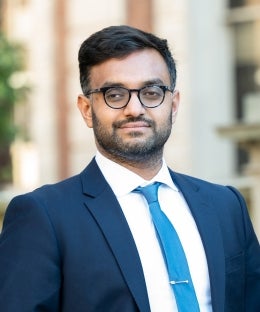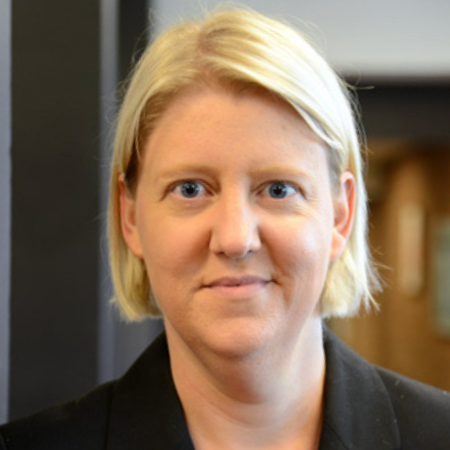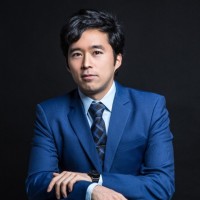September 12-13, 2025
Florida State University College of Law was delighted to host the 2025 Election Law Conference (ELC). The ELC brought together leading scholars from across the nation to discuss the practice and theory of election law, with a focus on the most urgent issues currently facing American democracy – representation, democracy and economic inequality, fair districting, and the challenges facing electoral integrity. The keynote was delivered by Nicholas Stephanopoulos, the Kirkland & Ellis Professor of Law at Harvard Law School.
The 2025 ELC at Florida State built upon the 2024 Election Law Conference at Washington University School of Law, and as such was a leading annual conference on constitutional law, democratic theory, and electoral process in the American legal academy.
Election Law Conference Photos
Schedule
Friday, September 12
12:30 p.m. – Lunch and Welcome Remarks (Erin O'Hara O'Connor) - D'Alemberte Rotunda
2:15 p.m. – Theorizing Representation (Jacob Eisler, moderator) - MCB 208
- Ashraf Ahmed, Two Faces of Representation
- Josh Sellers, Hollow Parties Reconsidered
3:30 p.m. – Break (Coffee) - D'Alemberte Rotunda
4:00 p.m. – Electoral Process under Strain (Alex Tsesis, moderator) - MCB208
- Rebecca Green, Administering Election Disputes
- Josh Douglas, Voter Turnout and Nonvoters
- Charquia Fegins, Race in Partisan Gerrymandering Claims
5:30 p.m. – Break (Snacks/Beverages) - D'Alemberte Rotunda
6:00 p.m. – Keynote Speaker Stephanopoulos, Redistricting Without Tradeoffs, (Jacob Eisler intro) - D'Alemberte Rotunda
Saturday, September 13
8:30 a.m. – Breakfast - D'Alemberte Rotunda
9:15 a.m. – Democratic Process in the Shadow of Economic Power (Amanda Driscoll, moderator) - MCB 208
- Yunsieg Kim, Public Campaign Financing Paradox
- Sarah Haan, Alternative Democracy
10:30 a.m. – Break (Coffee) - D'Alemberte Rotunda
11:00 a.m. – Districting and Democracy (Travis Crum, moderator) - MCB 208
- Wilfred Codrington, Panoramic Redistricting in Constitutional Design
- Lori Ringhand, Misrepresentation
12:15 p.m. – Final Remarks & Lunch - D'Alemberte Rotunda
Featured Speakers

Keynote Speaker: Nicholas Stephanopoulos, Kirkland & Ellis Professor of Law at Harvard University
Professor Stephanopoulos’s research and teaching interests involve election law, constitutional law, administrative law, legislation, and comparative law. His work is particularly focused on the intersection of democratic theory, empirical political science, and the American electoral system. He is the author of Aligning Election Law (2024) and a coauthor of Election Law: Cases and Materials (7th ed. 2022). His academic articles have appeared in, among others, the California Law Review, Columbia Law Review, Duke Law Journal, Harvard Law Review, Northwestern University Law Review, New York University Law Review, Stanford Law Review, University of Chicago Law Review, University of Pennsylvania Law Review, Virginia Law Review, and Yale Law Journal. He has also written for popular publications including the New York Times, Washington Post, Los Angeles Times, Chicago Tribune, Atlantic, New Republic, Slate, and Vox. He has been involved in several litigation efforts as well, including two partisan gerrymandering cases based on his scholarship and decided by the Supreme Court. He continues to work on litigation and advocacy as the Director of Strategy of Harvard Law School’s Election Law Clinic. Stephanopoulos is a frequent television and radio commentator on legal issues. He is a co-founder of PlanScore and TrueViews. He is a member of the Campaign Legal Center’s Litigation Strategy Council and the Committee for the Study of Digital Platforms. He has been named to The Politico 50 list, as well as the National Law Journal’s “Chicago’s 40 Under 40.” He is an elected member of the American Law Institute.
Before joining the Harvard Law School faculty, Stephanopoulos was a Professor of Law at the University of Chicago Law School. He was previously an Associate-in-Law at Columbia Law School and an Associate in the Washington, DC office of Jenner & Block LLP. Before entering private practice, he clerked for Judge Raymond C. Fisher of the Ninth Circuit Court of Appeals. A graduate of Yale Law School, Stephanopoulos also holds an M.Phil. in European Studies from Cambridge University and an A.B. in Government from Harvard College, graduating summa cum laude.

Ashraf Ahmed, Associate Professor of Law at Columbia University
Professor Ahmed is a legal theorist who works primarily in public law. Professor Ahmed's work draws on political philosophy, democratic theory, and intellectual history to study the nature and materials of legal argument and issues of representation, equality, and freedom in public law. His current projects examine the conceptual foundations of election law doctrine and the historical origins of presidential primacy in administrative law. In prior work, Professor Ahmed explored the character of constitutional norms, the tensions between presidential power and democratic legitimacy, and the anti-majoritarian turn in election law. He has consulted for Demos and was a graduate organizer for United Auto Workers.

Wilfred Codrington III, Walter Floersheimer Professor of Constitutional Law at Cardozo Law
Professor Codrington is the Walter Floersheimer Professor of Constitutional Law and co-director of the Floersheimer Center for Constitutional Democracy at Cardozo School of Law. He is also a non-resident fellow at the Brennan Center for Justice at N.Y.U. School of Law. A public law expert, his research, teaching, and advocacy focus on voting, elections, and the law of democracy; constitutional law, including constitutional theory and reform; and civil rights, anti-discrimination, and the role of race in the law. Professor Codrington is the co-author of the 2021 book The People’s Constitution: 200 Years, 27 Amendments, and the Promise of a More Perfect Union (New Press), a narrative history of the amendments to the U.S. Constitution and a clarion call for a renewed popular commitment to progressive constitutional reform.

Travis Crum, Professor of Law at Washington University in St. Louis
Professor Crum’s scholarship explores the relationship between voting rights, race, and federalism. His current projects examine the Fifteenth Amendment as an independent constitutional provision and the role of racially polarized voting in redistricting. Professor Crum’s scholarship has appeared or is forthcoming in the Columbia Law Review, Cornell Law Review, Duke Law Journal, Northwestern University Law Review, Notre Dame Law Review, and Yale Law Journal. Professor Crum’s article, The Unabridged Fifteenth Amendment, won the 2024 AALS Distinguished Scholarship Award in Election Law. His scholarship has been cited by federal courts, including in the U.S. Supreme Court’s recent decision in Allen v. Milligan. His work on the Voting Rights Act’s bail-in provision was described by the Wall Street Journal as the “blueprint” for the “Obama administration’s new legal strategy to preserve decades of minority-voting rights” in the aftermath of the Supreme Court’s decision in Shelby County v. Holder striking down the VRA’s coverage formula. He has been quoted in the New York Times, the Washington Post, and MSNBC. He is a contributor to the Election Law Blog. Professor Crum’s proposal for an effects-test bail-in provision was incorporated in the John R. Lewis Voting Rights Advancement Act of 2021, which passed the U.S. House of Representatives.

Josh Douglas, Acting Associate Dean for Research & University Research Professor Ashland, Inc-Spears Distinguished Research Professor of Law at the University of Kentucky
Professor Douglas is the Acting Associate Dean for Research, the Ashland, Inc.-Spears Distinguished Research Professor of Law, and a University Research Professor at the University of Kentucky J. David Rosenberg College of Law. He teaches and researches election law and voting rights, civil procedure, constitutional law, and judicial decision making. He is the author of Vote for US: How to Take Back our Elections and Change the Future of Voting (Prometheus Books 2019). His latest book is The Court v. The Voters: The Troubling Story of How the Supreme Court Has Undermined Voting Rights (Beacon Press 2024)

Amanda Driscoll, Professor of Political Science and Professor of Law at the Florida State University
Amanda Driscoll is a Professor in the Department of Political Science at Florida State University and a Professor of Law at the Florida State University College of Law (by courtesy). Her research and teaching focus on comparative democratic institutions in modern Latin America, with particular attention to courts, the separation of powers, and the rule of law. Her work has been published in leading academic journals, including the American Journal of Political Science, the Journal of Politics, The Journal of Law and Courts, World Development, and Political Research Quarterly. Her research has been supported by the National Science Foundation, the Institute of Humane Studies, and other funding organizations. Her first book, The Efficacy of Judicial Review: the Rule of Law and the Promise of Independent Courts, is forthcoming at Cambridge University Press.

Jacob Eisler, James Edmund and Margaret Elizabeth Hennessey Corry Professor at Florida State University
Jacob Eisler joined Florida State University College of Law in 2023 as the James Edmund and Margaret Elizabeth Hennessey Corry Professor. Professor Eisler researches in the areas of constitutional law, election law, criminal law (focused on anti-corruption law), legal theory, and law and technology. He applies moral and political theory to questions of judicial reasoning and institutional design, with a focus on the relationship between legal doctrine, democratic self-rule, and the conditions necessary for political liberty. He is the author of The Law of Freedom: The Supreme Court and Democracy (Cambridge University Press, 2023), and his scholarship is published or forthcoming in leading law reviews and peer-reviewed journals, including the Emory Law Journal, UC Davis Law Review, Pennsylvania Journal of Constitutional Law, and the Election Law Journal. He is regularly interviewed or quoted in leading media outlets nationally and internationally on matters related to the law and politics. He was the Mid-Career Fellow at the Baldy Center at the University of Buffalo for the Fall of 2024, a competitively selected residential fellowship. Before entering the legal academy, he clerked on the Second Circuit Court of Appeals for the Honorable Gerard E. Lynch in New York City and practiced as an international capital markets attorney in London with Allen & Overy and Herbert Smith Freehills.
Charquia Fegins, Assistant Professor at Florida State University
Professor Fegins comes to FSU Law after having been the American Bar Foundation/AccessLex Institute Post-Doctoral Fellow in Legal and Higher Education. She also served as the associate editor for the peer-reviewed journal, Law & Social Inquiry. Professor Fegins holds a B.S.E. in operations research and financial engineering from Princeton University, a J.D. from Georgetown University Law Center, and an LL.M. from UCLA School of Law. Prior to receiving her LL.M., Professor Fegins researched Brazilian police brutality as a Fulbright scholar and litigated voting rights issues across the United States. After joining the FSU Law faculty in 2022, Professor Fegins teaches Election Law, Race and the Federal System, Constitutional Law I, and Civil Rights Law.

Rebecca Green, Associate Professor of Law at William & Mary Law School
Professor Green teaches courses in Election Law, Redistricting & GIS, Contract Law, Privacy Law, and Alternative Dispute Resolution. Professor Green co-directs the Election Law Program, a joint project of the William & Mary Law School and the National Center for State Courts that provides resources for judges on election law topics. Professor Green earned her B.A. in Political Science from Connecticut College, an MA from Harvard University, and is a cum laude graduate of Harvard Law School.

Sarah C. Haan, Sheridan Albert ’48 Professor of Law at Brooklyn Law School
Professor Sarah C. Haan writes at the intersection of corporate law and democracy, on subjects such as corporate governance, shareholder voting rights, and disclosure. She joined Brooklyn Law School in the summer of 2025 from Washington & Lee University School of Law, where she was the Class of 1958 Uncas and Anne McThenia Professor of Law, and twice received the school’s Ethan Allen Faculty Fellowship for excellence in legal scholarship. Professor Haan’s scholarship has appeared in the Stanford Law Review, the Yale Law Journal, and other leading journals, and has been featured in the New York Times, the Harvard Law School Forum on Corporate Governance, and the CLS Blue Sky Blog. Two of her articles, Corporate Governance and the Feminization of Capital and Voting Rights in Corporate Governance: History and Political Economy, were named among the ten best corporate and securities law review articles of 2022 and 2024, respectively. She is writing a book about the history of corporate democracy.

Yunsieg Kim, Associate Professor of Law at Hofstra University
Professor Kim is an Associate Professor at the Maurice A. Deane School of Law at Hofstra University. He holds a J.D. from Yale Law School and a Ph.D. from the University of Michigan. He studied technological innovation and regulation, with a particular focus on antitrust and competition law. He clerked for Judge Mark J. Bennett of the United States Court of Appeals for the Ninth Circuit in Honolulu, Hawaii. Before his clerkship, he was a litigation associate at King & Spalding LLP in Washington, D.C.

Lori Ringhand, J. Alton Hosch Professor of Law & Josiah Meigs Distinguished Teaching Professor at the University of Georgia
Professor Ringhand is the J. Alton Hosch Professor of Law at the University of Georgia School of Law. She teaches courses on constitutional law, election law, and state and local government law. She has been a member of the School of Law faculty since 2008 and was named a Hosch Professor in 2012. She is a nationally known Supreme Court scholar and the author of the book Supreme Court Confirmation Hearings and Constitutional Change (with Paul M. Collins) published by Cambridge University Press. She is also the co-author of Constitutional Law: A Context and Practices Casebook, which is part of a series of casebooks dedicated to incorporating active teaching and learning methods into traditional law school casebooks.

Josh Sellers, Professor of Law at the University of Texas at Austin
Professor Sellers teaches and writes in the areas of election law, constitutional law, race and the law, and American politics. He is widely in leading journals, including the Stanford Law Review, Vanderbilt Law Review, University of Pennsylvania Law Review, and New York University Law Review. Professor Sellers has received numerous accolades, including the esteemed Berlin Prize from the American Academy in Berlin, and honors from the AALS Section on Election Law. Professor Sellers is an elected member of the American Law Institute and currently serves as an advisor on the Institute's Election Litigation project.

Alexander Tsesis, D’Alemberte Distinguished Chair in Constitutional Law and Professor of Law at the Florida State University College of Law
Alexander Tsesis is the D’Alemberte Distinguished Chair in Constitutional Law and Professor of Law at the Florida State University College of Law. He is also the General Editor of the Cambridge Studies on Civil Rights and Civil Liberties and the Oxford Theoretical Foundations in Law. His most recent book is Free Speech in the Balance (Cambridge University Press 2020). His previous books include: Constitutional Ethos: Liberal Equality for the Common Good (Oxford University Press 2017), For Liberty and Equality: The Life and Times of the Declaration of Independence (Oxford University Press 2012), We Shall Overcome: A History of Civil Rights and the Law (Yale University Press 2008), The Thirteenth Amendment and American Freedom (New York University Press 2004), and Destructive Messages: How Hate Speech Paved the Way for Harmful Social Movements (New York University Press 2002). His articles deal with free speech, religious liberty and antiestablishment principles, constitutional interpretation, civil rights law, and human rights. They have appeared or will appear in a variety of law reviews, including the Columbia Law Review, Cornell Law Review, Northwestern University Law Review, Southern California Law Review, Stanford Law Review, University of Pennsylvania Law Review, and Vanderbilt Law Review.
